Experts of "The Future of Donbass" discussion club presented in Kyiv the draft of the concept of the International Provisional Administration for temporarily occupied parts of the Donetsk and Luhansk oblasts to representatives of foreign embassies in Ukraine. Earlier, in April, the same presentation was held for representatives of domestic think tanks and public organizations, who are involved in studying and discussing the reintegration of Donbass.
About the project
"The Future of Donbass" discussion club began its work in September 2017. About 30 experts from Ukrainian analytical centers took part in it. The subject of the conversations were ideas and laws that deal with the solution of the Donbass problem, but the main task was still the modeling of the prospects. How do experts see the solution to the problem? How to cope with the enemy, anti-Ukrainian propaganda, which has been aggressively conducted in the occupied territories for the past 4 years and penetrates into the brains of even those who live in free Ukraine? Experts discussed all issues of possible reintegration in detail: what kind of amnesty can and should be implemented after the return of territories; when it is better to hold elections in the Donbass so that they are free and safe; by what laws those who commit crimes in the so-called "LDNR" have to be judged?
All these issues were also considered in the context of the idea of introducing a UN peacekeeping mission on the territory of the Donetsk and Luhansk oblasts and its discrediting by president Putin. Can Ukraine count on a successful vote in the UN Security Council, where Russia has the right of veto? At the current stage - no.
Can we seriously consider the proposal of Anders Fogh Rasmussen on the need to introduce to Donbass a 20 thousand peacekeeping contingent? No. Such contingents work in African countries where conflicts based on ethnic and religious hatred, as well as political influence and access to natural resources, still lead to truly wild massacres and even cannibalism. But, besides this, peacekeeping missions are also very expensive. The UN budget allocates billions of dollars each year for peacekeeping operations around the world. Will the UN Security Council (where Russia has the right to veto) be ready to allocate, for example, $500 million per year for one peacekeeping operation in Ukraine? Will the introduction of an exclusively military contingent lead to a real solution of the problem, or will it temporarily stop the fighting? Who will be responsible for the civilian management of the huge infrastructure complex of the occupied territory during the peacekeeping operation? What should be the humanitarian policy regarding the occupied territories? All these issues are so deeply interconnected that it is not advisable to consider them separately.
The result of discussions of experts was the development of the Concept of the Implementation of the International Provisional Administration (IPA) in the occupied parts of the Donetsk and Luhansk oblasts. The project details not only the military component of the conflict settlement, but also civil law one.
About the co-authors
Contributors to the final version of the Concept: Serhiy Harmash, OstroV’s chief editor, Head of the Centre for Research of Donbas Social Perspectives (CRDSP); Valeriy Kravchenko, Director of the Centre for International Security; Yevhen Yaroshenko, political scientist of the Democracy House; Oleksiy Semeniy, Director of the Institute for Global Transformations; Hryhoriy Kaposlioz, national security expert, lead expert of the National Security Academy non-governmental organization; Oleksandr Ustymenko, national security expert, Assistant Professor of the Department of Globalistics, European Integration and National Security Management of the National Academy for Public Administration under the President of Ukraine and Lada Roslycky, an international security and strategic communications consultant.
About the Minsk agreements and their prospects
The key stumbling block in the discussions was the Minsk agreements. On the one hand, it is the only official and internationally recognized document that regulates the settlement of the conflict. But it is obvious that neither for Ukraine, nor for Russia it is a real roadmap. At the same time, none of the officials publicly says that the agreements need to be revised, including on the basis of Ukraine's political position and new legislation: the official recognition of Russia as an aggressor.
As a result, experts came to the conclusion that without the revision of the Minsk agreements, the issue of a real settlement of the situation will not advance. In other words, it is impossible to refuse that document, but it can be filled with new content, taking into account new geopolitical realities. The Minsk agreements can include a mechanism for settling the conflict with the integrated mission of the UN - the International Provisional Administration.
Main tasks
In the opinion of the project experts, the IPA should consist of a military and police contingent, as well as of civilian personnel involved in ensuring a sustainable security regime, providing legal regime in accordance with the current legislation of Ukraine, restoration of the institutions of Ukrainian state power in the occupied territories, support of the processes of justice, transitional justice and reconciliation in accordance with the legislation of Ukraine, holding legitimate local government elections in the currently occupied territories in accordance with the legislation of Ukraine. After forming the statutory authorities of local government in the occupied territories, the authority of the IPA will be terminated and transferred to local government.
Considering that Russia has already stated about its disagreement with the participation in the peacekeeping contingent of representatives of NATO countries, the authors of the concept proposed their option of restrictions for the IPA. The members of peacekeeping and police contingents of the IPA cannot include representatives of the countries having a state border with Ukraine and the number of representatives of the countries having a state border with Ukraine as part of any civil authority of the social and economic management of the IPA may not exceed 50% of its structure. This, according to the experts, should ensure political balance and minimize all kinds of speculation regarding the principles of territory management.
The IPA should facilitate the return of the temporarily displaced persons to the occupied territories, restoration of all their material and immaterial rights.
Painful reconciliation
Experts offer that all war crimes and crimes against humanity in the occupied territory of Ukraine should be submitted to the UN Criminal Tribunal, which should be created separately. All other crimes committed in the occupied territories of the Donetsk and Luhansk oblasts should be investigated in accordance with the Criminal Code of Ukraine.
Ukraine agrees to the amnesty for the citizens of Ukraine who did not commit crimes against humanity, war crimes and are not involved in the creation of illegal armed formations. But the citizens of Ukraine who held key positions in the quasi-public bodies in the occupied territories of the Donetsk and Luhansk oblasts after April 14, 2014 and violated the oath of employees of the internal affairs bodies, prosecutors, judges, servicemen and government officials will be denied in the right to participate in elections of all levels and be elected to the councils of all levels, the right to be appointed to positions in executive and law-enforcement, judicial and local government branches at all levels, the right to create non-governmental and political organizations.
Such a mechanism, according to experts, will make it impossible for people, who have betrayed Ukraine, to return to the legal politics, but will not lead to their persecution. In fact, these citizens of Ukraine can live and work in their native cities, but they will not be able to legally participate in the political processes of the state. The question of how long such a restriction should exist is left open - this is the subject for political dialogue, and, perhaps, compromises.
The ultimate goal of the IPA is holding legitimate local government elections in the currently occupied territories and transferring the authority to local government. According to experts, elections can be held only in conditions of stable security and not earlier than 3 years after the beginning of the work of the IPA.
Freedom of speech and media
The experts propose devolving power on the IPA to restrict the activity of political parties on the imposed territory until the start of the official election campaign. It is also important that all media in the territory of Donbass operate exclusively under the jurisdiction of Ukrainian legislation.
This issue is closely connected with those fears regarding Ukraine, which are intensively imposed on the local population in the occupied territories. One of the co-authors of the concept, head of the Centre for Research of Donbas Social Perspectives Serhiy Harmash, stressed that the media space in the "DNR" and "LNR" is not purely pro-Russian – it is anti-Ukrainian. There is a difference between these two concepts. Most of the airs of local media are devoted to describing the "nightmare" of life in Ukraine rather than praising the Russian Federation. "Obviously, the task of Russian propagandists is to provoke hatred of Ukraine, in which they want to create an internal conflict after the region's return according to the Minsk scenario". But people's deputy of Ukraine Dmytro Lubinets (electoral district No.60, Donetsk oblast; part of the district is in the occupied territory) believes that the fears of the population should not be exaggerated.
"I can tell you clearly that the local population is just waiting for Ukraine's return. Everyone is already "full" with the Russian World. I will give examples - Sloviansk, Kramatorsk, Mariupol – there were no problems with the local population after the liberation of these cities", - Dmytro Lubinets says.
This thesis is quite controversial, since Sloviansk and Mariupol were liberated quickly, and the remaining cities are under a cloud of propaganda for more than 4 years, and the degree of isolation is increasing.
Deputy Permanent Representative of Ukraine to international organizations in Vienna Ihor Lossovsky, who participated in the presentation, compares the situation after the introduction of the UN peacekeeping mission in Croatia in 1995 and the current state of affairs in the Donbass. "Sometimes I watch Russian news programs and talk shows for professional purposes and I see the results of this sophisticated and intensive propaganda. 20 years ago (in the case of Croatia, - auth.), there were no such information war technologies, and now we are facing them. Any counterpropaganda will face opposition, it will be a serious task".
One of the co-authors of the concept Oleksiy Semeniy agrees with him. "The more time passes, the more dynamics of changes. People get used to it. I have a lot of skepticism about the assertion that local population will perceive the return of Ukraine with delight. But of course, no one is fond of life in the firing line. People do not like that they are in a much worse socioeconomic situation than they were in before, they do not like that they are hanging between heaven and earth in the occupied territory. Even if someone believed in the Russian World, they already have a practical understanding. International experience shows that the process of adaptation and reconciliation is very long and difficult".
What do changes depend on?
People's Deputy Dmytro Lubinets believes that the dynamics of events in the Donbass will depend primarily on the results of presidential, parliamentary and even local elections scheduled for 2019-2020.
"In fact, they (Russia – auth.) are waiting for elections in Ukraine – presidential, parliamentary and even elections to local government in 2020. In my opinion, nothing will change in the situation with Donbass and Crimea until the elections in Ukraine are held and they (Russia - auth.) will try the pro-Russian president to win as hard as possible. If the first scenario fails a bid for the pro-Russian majority in the Verkhovna Rada will be made, and the third option is the pro-Russian political forces and political parties to win in the local elections under the conditions of decentralization, and I emphasize this".
Lubinets believes that it will be possible to hold real negotiations with Russia after the end of the electoral process.
"Compromise should be sought for with the Russian Federation. Can this be done only by Ukraine? Of course, no. Via international pressure and continuation of sanctions – economic, political, any – we can try to make it profitable for the Russian Federation to let the situation with Donbass go – this will be the first step, and the next step is to raise the question of Crimea. The whole world is talking about the Donbass – and who is talking about the Crimea? This is a manipulation, we focused on the problem of Donbass and it should not seem like the Crimea was let go. It is needed to say clearly – even the introduction of the IPA, first in the Donetsk and Luhansk oblast, and then in the Crimea, is interrelated".
Recipes of reconciliation
"Elections in the territory of the international contingent should be organized by truly international experts who already have the relevant experience", - Lossovsky says. – If Ukraine really goes along this path, the elections will show new leaders with whom it will be possible to cooperate effectively after the region's de-occupation. I agree that presence of Ukrainian media and access for Ukrainian political parties will be critical for holding these elections".
People's Deputy Lubinets admits: dialogue will not be possible without a sufficiently broad amnesty. And this will be the most painful topic in the negotiations, both at the official level and in the public debate.
"All adequate people's deputies understand that there are people who were forced to stay there and did not take part in the war, they can undergo the law on amnesty. But how to determine who should be deprived of rights? What does it mean "held key positions?" And if he served as a private in the "DNR police" - would he be subject to amnesty? On the one hand, he did not take part in military operations, on the other hand, he had weapons in his hands, but no "DNR" certificate. How to be with all the so-called state employees – police, Ministry of Emergency Situations, teachers? What to do with them? Did they participate in any sense?"
"The process simply will not start without a sufficiently broad amnesty. It should concern the vast majority of people. In the concept, we prescribed unconditional prosecution for committing criminal offenses, but those who did not kill should be granted amnesty. If we tell people that we do not see them in a peaceful environment and immediately after, they are thrown to prison or cleaned – they will get an additional incentive to fight to the end. So, now only the leaders are interested in maintaining the status quo, and if there is not a broad amnesty, the number of such people will increase", - Semeniy motivates.
Valeriy Kravchenko believes that now it is impossible to plan the timing of the international provisional administration. "This will be a big test for us all. Presidential and parliamentary elections are coming, these are drivers for destabilizing the situation. We see how the special services of the Russian Federation work and should be very careful".
The main expediency of the IPA for us, - Serhiy Harmash explains, - is that it is designed not to allow peacekeepers to become a factor of the conflict preservation. Putin does not want to end the conflict, he wants to transfer it from the form of interstate into the internal one, into a real civil war. The international provisional administration, which also consists of the guarantor countries of the Budapest Memorandum, should become a mechanism to counter such reformatting. Putin demands that there be no NATO countries among the peacekeepers. OK. But the participation of guarantor countries of the Budapest Memorandum in the temporary civilian management of the de-occupied territories is quite logical. And all the guarantor countries of the Budapest Memorandum are also members of the UN Security Council. Therefore, their inclusion into the process of return of peace to the Donbass automatically strengthens our positions and weakens the aggressor".
Maryna Vorotyntseva, Centre for Research of Donbas Social Perspectives, for OstroV
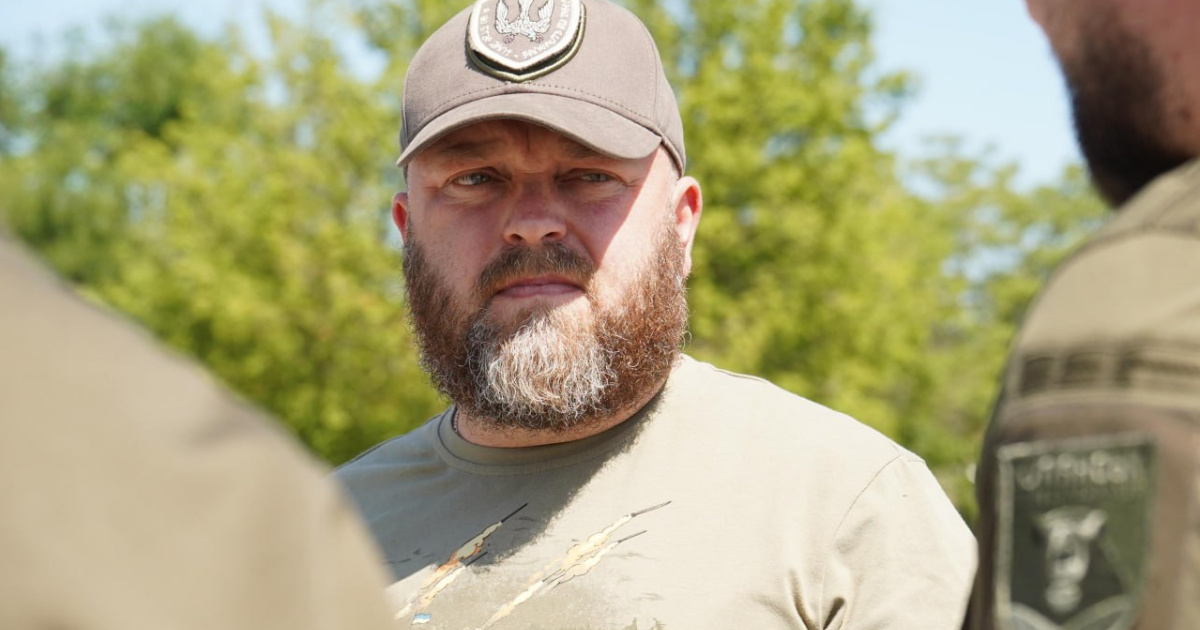
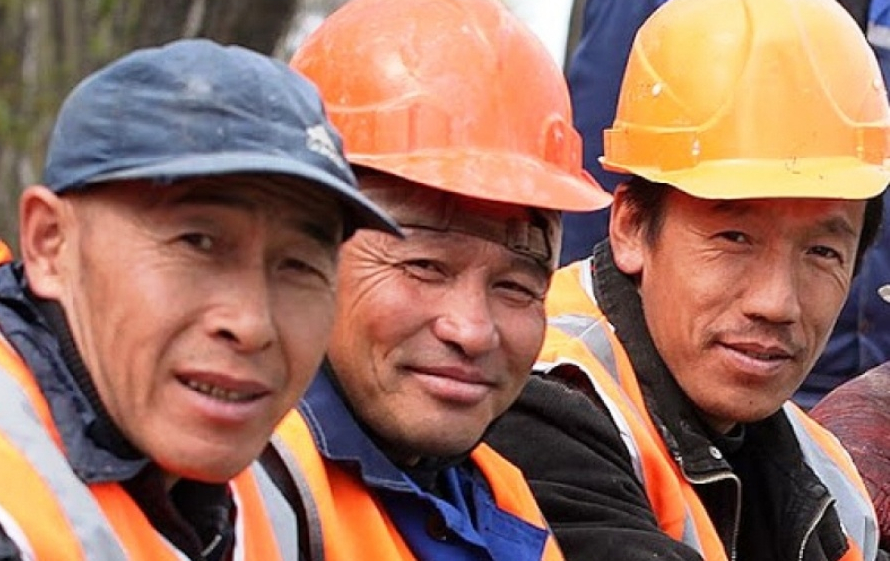
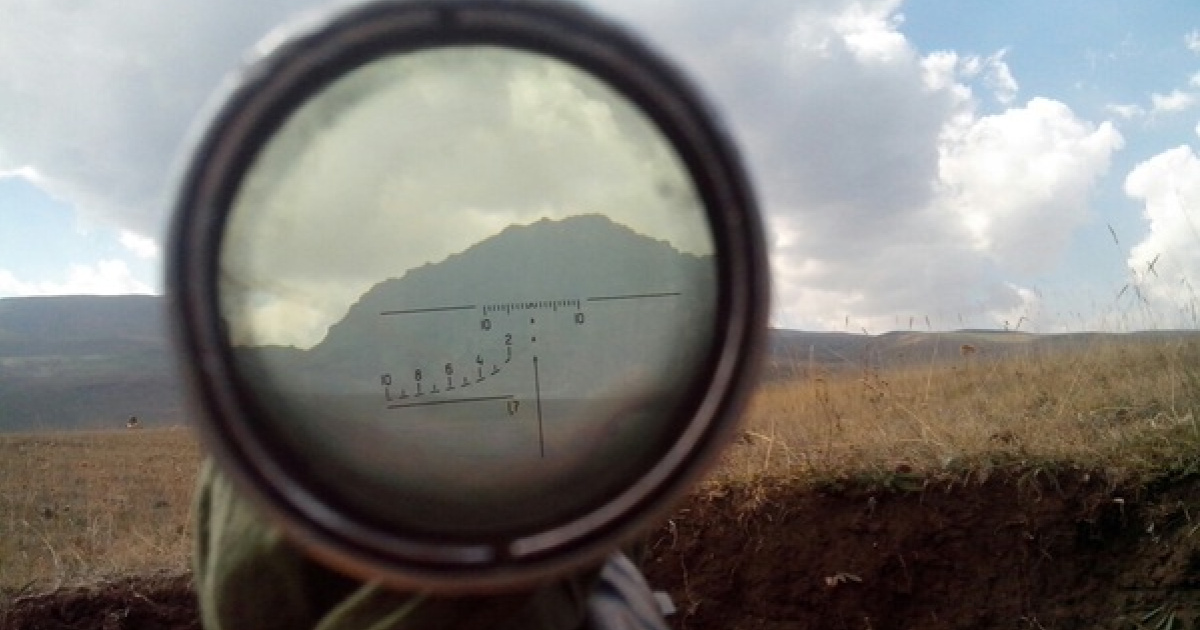
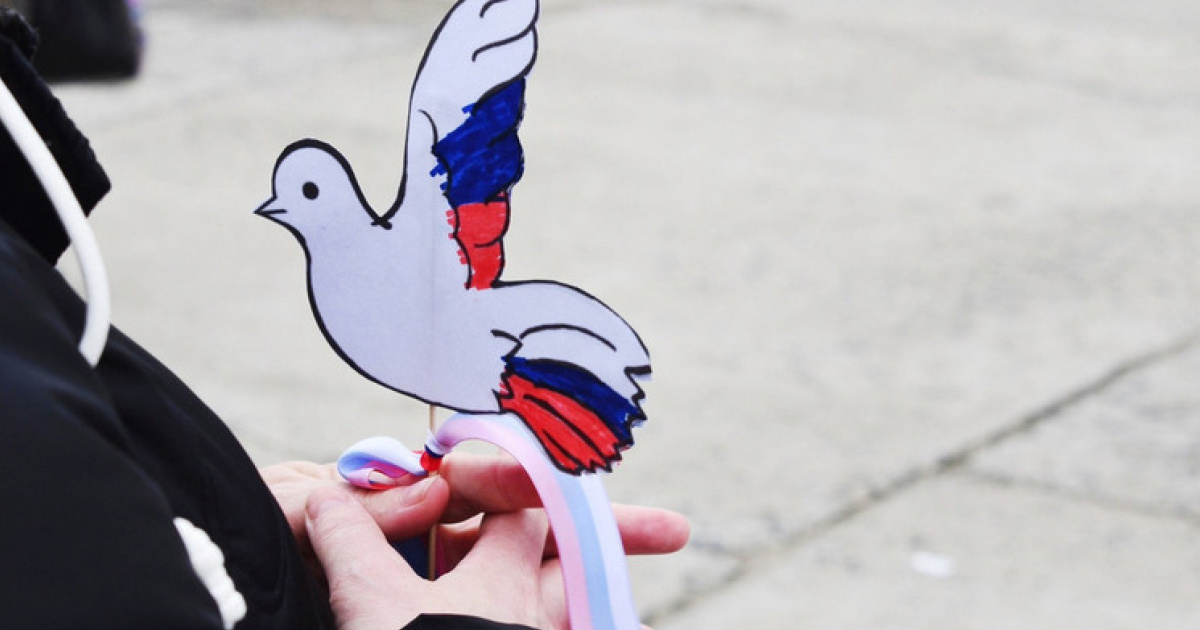
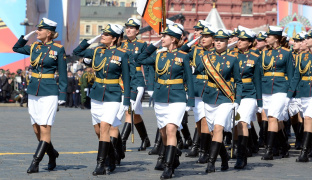
 "International Provisional Administration is aimed at not letting to reformat the conflict from interstate to civilian one"
"International Provisional Administration is aimed at not letting to reformat the conflict from interstate to civilian one"